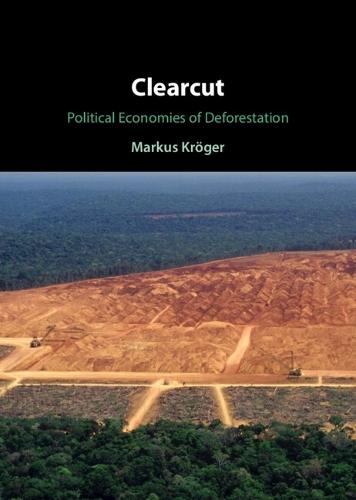Overview
Regionally dominant extractive sectors - including Brazilian cattle ranching, Amazonian narco-gold mining, and Finnish paper pulping - provide the foundation for this book's analysis of the range of motivations for deforestation. This framing allows for a discussion of the global political economy and ecology in general, and an in-depth examination of the varieties of extractivisms that define land and resource use. The chapters take an interdisciplinary approach, drawing on political ethnography and world systems analyses across the Global North-South divide. The book develops and applies a new theory that identifies regionally dominant political-economic systems as the driving forces behind deforestation. This book is essential reading for advanced students, researchers, and policy makers working in (de)forestation, environmental studies, environmental law, economics, conservation, climate change, and sustainability, leading to a deeper understanding of why our planet's forests are under threat. This title is also available as Open Access on Cambridge Core.
Full Product Details
Author: Markus Kröger (University of Helsinki)
Publisher: Cambridge University Press
Imprint: Cambridge University Press
ISBN: 9781009389549
ISBN 10: 1009389548
Pages: 330
Publication Date: 31 August 2025
Audience:
College/higher education
,
Professional and scholarly
,
Postgraduate, Research & Scholarly
,
Professional & Vocational
Format: Hardback
Publisher's Status: Forthcoming
Availability: Not yet available, will be POD

This item is yet to be released. You can pre-order this item and we will dispatch it to you upon it's release. This is a print on demand item which is still yet to be released.
Reviews
'Over the last two decades from his perch in Helsinki, Markus Kröger has penned some of the most illuminating work on forests, frontiers, and industrial tree plantations. In Clearcut he draws together a wealth of exceptionally rich fieldwork from both Latin America and Scandinavia to offer a capacious and global theory of deforestation that links distinctive regional political economic dynamics to different varieties of extractive capitalism. Central to his innovative and provocative study are the particularities of extractive sectors - plantations, ranching, mining - that both depend upon and propel large-scale deforestation to potentially catastrophic tipping points. Clearcut is comparative political economy of the highest order, shining light on contrasting deforestation trajectories, on the role of regionally specific class configurations, and on what he calls the role of enabling and resisting moral economies. It is a magnificent achievement.' Michael Watts, Class of 63 Professor Emeritus, University of California, Berkeley 'Markus Kröger's breakthrough analysis significantly advances the understanding of how and why regional political economies are propelling deforestation. He offers novel insights into a fascinating array of cases, from cattle ranching and gold mining in the Amazon to the pulp and paper industry in Finland. Clearcut is going to be a foundational text for forest scholars and policymakers for decades to come.' Peter Dauvergne, Professor of International Relations, University of British Columbia 'Markus Kröger is a top world expert on deforestation. From his early knowledge of the cellulose and paper industry in Finland and its impacts around the world, he went on to do painstaking field work in other countries. In this innovative book he focuses again on Finland and also on the commodity extraction frontiers in the Amazon of Brazil and Peru, to develop a general theory of deforestation.' Joan Martínez Alier, ICTA-Universitat Autònoma de Barcelona
Author Information
Markus Kröger is a Professor of Global Development Studies at the University of Helsinki. He has focused on the politics of extraction and resistance amid global climatic-ecological crises. He has published four books and many articles on forestry, mining, agriculture, and agroforestry dynamics, focusing especially on South America, India, and the Arctic.




